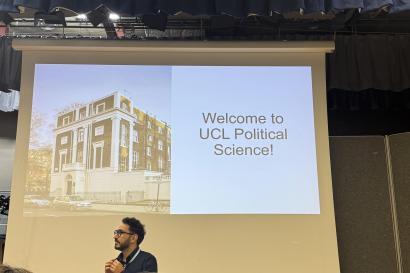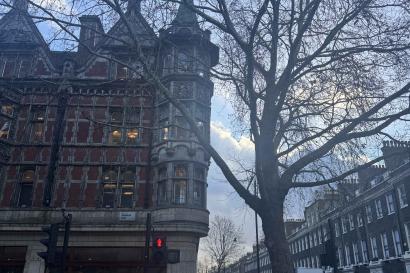This week I saw “The Fall,” an award winning show about the Rhodes Must Fall and Fees Must Fall movements at University of Cape Town. Well, I saw it twice actually. So I guess that answers any questions about whether it was good or not.
The play covers a lot of ground, beginning in 2015 at the height of the Rhodes Must Fall protests. These protests were centered around a statue of Cecil John Rhodes that once stood at the main entrance to UCT’s upper campus. Though it may have been the main target, these protests were of course about far more than a single statue. UCT students of color study under the persistent legacy of colonialism, and the once daily reminder of this British imperialist is only one such example. As one characters in “The Fall”says after activists successfully pressured the school into removing the statue, “I remember thinking now the real work of decolonization can begin." Statue or not, UCT, hailed by many as the best university on the African continent, is still plagued by Eurocentrism and colonial mindsets. Many students and professors are therefore engaged in a difficult and lengthy struggle for decolonization both within the university and without.
I have seen such movements for decolonization within my own classes. In my last post, I think I briefly mentioned that my South African Politics professor, Dr. Lushaba, has been actively working from a decolonized perspective. Part of this has been reading works written by white writers in the social science fields and seeing the ways in which they justify or downplay the apartheid regime. Perspectives such as these are embedded throughout many academic disciplines, and can only be countered by consistent pushes for decolonization from students and faculty.
These conversations surrounding decolonization have been ever present throughout my time in South Africa, but this does not mean they are only relevant here. The U.S. context is extremely different, but our education system also desperately needs to let go of the Eurocentric perceptive that only privileges white Western voices and histories. It may be a difficult process, but for the United States, South Africa, and many countries around the globe it is a necessary one. Here in South Africa, it falls under broader movements for decolonization, of which education is only one part.
I find traces of these movements everywhere in South Africa: in my classes, in conversations, and in plays like “The Fall.” I highly recommend the show. And if any of you happen to be in London, “The Fall” will be touring there next and you should definitely go see it.

Naomi Runder
<p>Hello! I'm a current junior at Grinnell College, studying sociology and planning to go into public health policy. Outside of classes, I stay busy by volunteering to help (and play with!) dogs at the local animal shelter and organizing around national issues with other on-campus student activists. This semester in Cape Town will be my first time out of the United Staes, and I'm beyond excited to see where it takes me.</p>









